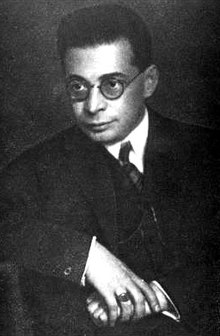This article may require cleanup to meet Wikipedia's quality standards. The specific problem is: We should fix the citation style, per WP:PAREN and [1]. (December 2022) |
Otto Rank | |
|---|---|
 | |
| Born | Otto Rosenfeld 22 April 1884 |
| Died | 31 October 1939 (aged 55) New York City, US |
| Nationality | Austrian |
| Known for | Psychoanalytic look at heroes and their births The Double Relationship and existential therapy |
| Spouse | Beata Rank |
| Academic background | |
| Alma mater | University of Vienna |
| Influences | Sigmund Freud, Friedrich Nietzsche, Soren Kierkegaard |
| Academic work | |
| Discipline | Psychoanalysis, philosophy |
| Institutions | University of Pennsylvania |
| Influenced | Sigmund Freud, Carl Jung, Sándor Ferenczi, Jessie Taft, Carl Rogers, Paul Goodman, Rollo May, Irvin Yalom, R. D. Laing, Ernest Becker, Stanislav Grof, Matthew Fox, Anaïs Nin, Henry Miller, Lawrence Durrell, Nella Larsen, Salvador Dalí, Martha Graham, Samuel Beckett |
| Part of a series of articles on |
| Psychoanalysis |
|---|
 |
Otto Rank (/rɑːŋk/; Austrian German: [ʀaŋk]; né Rosenfeld; 22 April 1884 – 31 October 1939) was an Austrian psychoanalyst, writer, and philosopher. Born in Vienna, he was one of Sigmund Freud's closest colleagues for 20 years, a prolific writer on psychoanalytic themes, editor of the two leading analytic journals of the era, including Internationale Zeitschrift für Psychoanalyse (“International Journal of Psychoanalysis”),[1] managing director of Freud's publishing house, and a creative theorist and therapist. In 1926, Rank left Vienna for Paris and, for the remainder of his life, led a successful career as a lecturer, writer, and therapist in France and the United States.